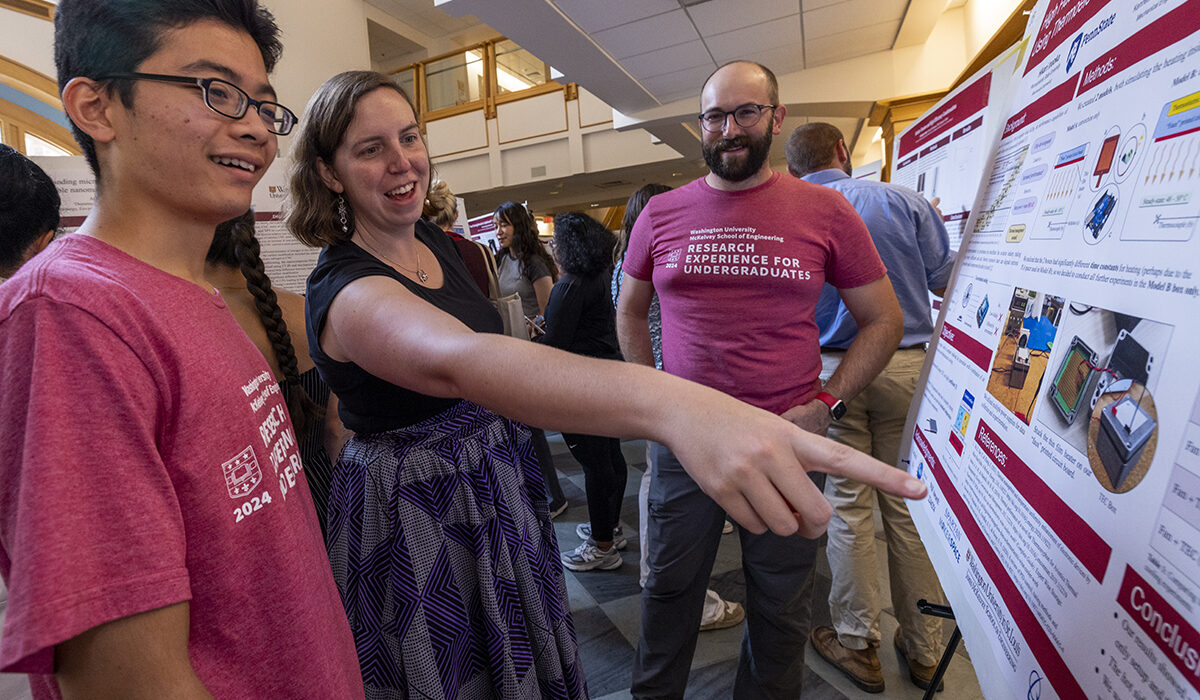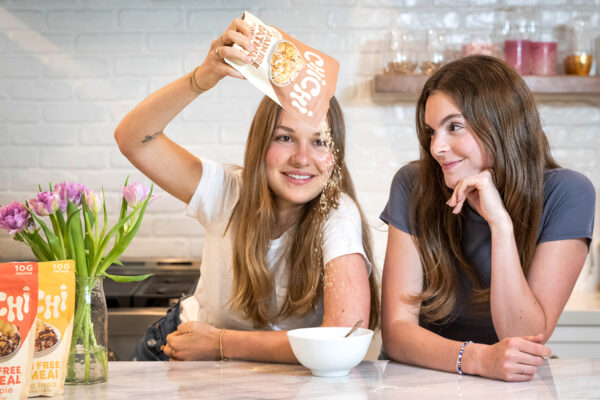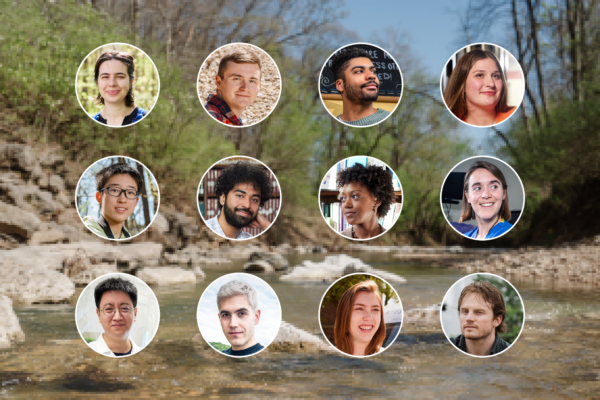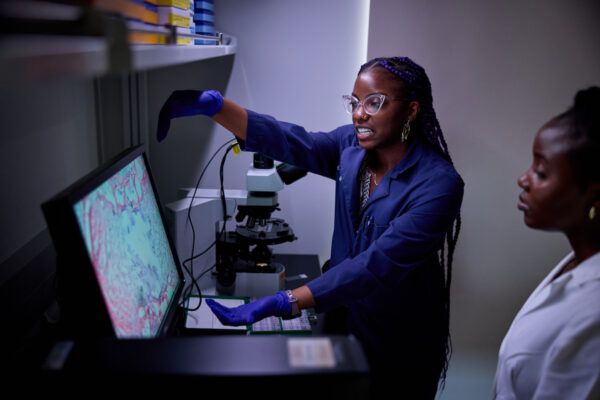Trained as an engineer, Janie Brennan, a senior lecturer at the WashU McKelvey School of Engineering, now builds courses instead of machines. She’s using her classroom to peel away systemic and cultural barriers to engineering.
Brennan always assumed her aptitude for math and science would lead her to a career in engineering, whether that be in industry or research. But near the end of her graduate program, she worked as a teaching assistant to undergraduate students. And she loved it.
“Oh my god where has this been all my life,” Brennan said about her first encounter with teaching. “It’s that feeling where you don’t know something exists and then you do it and you’re like, ‘This is the best thing ever.’ Suddenly everything I thought I was going to do took a hard right turn.”
Brennan said one of her favorite parts of teaching is designing a course from the ground up.
“There’s something very satisfying and meditative about trying to make your presentation and activities structured so that people will understand it better,” Brennan said. “That’s how I engineer. I engineer my course design.”
During her tenure, Brennan has worked hard to also create a welcoming environment for students, including those who traditionally have been underrepresented in engineering. Along with McKelvey Engineering teaching professor Emily Boyd and lecturer Sharniece Holland, Brennan leads the Washington University Summer Engineering Fellowship (WUSEF), which places talented first-generation and limited-income college students in WashU research labs. The program also hosts weekly community-building programs and connects students to faculty advisers to explore advanced degree programs and career paths. The goal is to equip fellows with the skills and confidence to thrive in graduate school, where first-generation and limited-income students remain significantly underrepresented by even wider margins than in undergraduate programs.
Kaylee Green, a 2024 WUSEF fellow and a senior studying biomedical engineering at McKelvey Engineering, remembers being overcome with emotion at a Q&A session with WUSEF alumni.
“I’m a first-generation college student, and one of the people on the panel was, too,” Green recalled. “Literally everything he’s experiencing is what I’m going through now. Dr. Brennan makes sure to surround us with people who have had similar experiences to us and are at the place we seek to be so we can work to be there, too.”
In Brennan’s eyes, increasing diversity in engineering isn’t about improving statistics, it’s about doing better science.
“Having people from different backgrounds makes your products so much better,” Brennan said. “Everyone who looks like you will think to solve things the same way as you. But when you work with people who aren’t like you, it’s just better.”
Savannah Dubois, a 2024 WUSEF fellow who attends the University of Hawaii, said the program helped her to understand how diversity improves the scientific process.
“The diversity in our labs makes them so much better,” Dubois said. “There were so many different ideas, and it makes such a difference to be learning from everybody.”
‘I’m human, too’
Another way Brennan supports students is through empathy. She offers flexibility in her courses and encourages students to prioritize their well-being.
“I think it’s important for students to know that I’m human, too,” Brennan said. “Sometimes we have mental health problems and family problems that get in the way. Does that mean you’re going to be less successful? No.”
Junior Wes Pedone, who has taken two courses with Brennan and is her academic advisee, said Brennan gets to know her students as people.
“She breaks down the walls of a professor who’s intimidating,” Pedone said. “She makes herself approachable by having non-engineering conversations and wanting to hear about you and what’s going on.”
Dubois agreed. She said she is a stronger student thanks to Brennan’s strengths as an educator and her gifts as a mentor.
“If there were more people like Dr. Brennan, there would be more interest in engineering,” Dubois said. “A lot of people think it’s hard, that they can’t do it, that no one in their family has done it. But she’s opening these opportunities for students from different backgrounds. They just need a door in, and she’s that door.”



